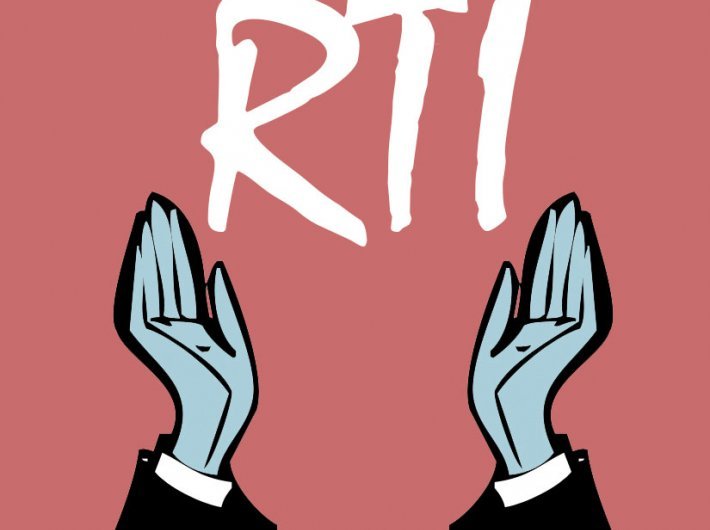Even amid Covid-19, only 12 states provide online facilities for registration of complaints: Transparency International India report
When it was launched on October 12, 2005, the Right to Information Act ushered in a revolution, empowering common citizens to ask questions on a range of government activities and seek accountability. Over the years, they – especially a new breed of activists – made good use of the new law, to demand their rights as well as to fight corruption. Fifteen years later, here is a review of its working, courtesy a report prepared by Transparency International India:
* Even after 15-16 years, Information commissions are perceived as burden on the government.
* In Global Annual Rating of RTI Acts based on legislation published by Centre for Law and Democracy, RTI Act of India started with 2nd best in the year 2011 and dropped to 4th best in the World in the year 2016. India has further dropped down to 6th position in the year 2018 (Same in 2020).
Key Findings of State Transparency Report
1. Total Number of RTI applications as reported so far:
Total No. of RTI: More than 3,32,71,034 (3.32 crore)
· Top 5 governments receiving maximum No. of RTI
Central Information Commission (92,63,816)
Maharashtra (69, 36, 564)
Karnataka (30, 50, 947)
Tamil Nadu (26, 91, 396)
Kerala (21, 92, 571)
· Governments receiving fewer RTI applications among state having >10 million population
West Bengal (98,323)
Assam (1,82,994)
· Top 2 Governments among states having <10 million population receiving maximum RTI applications:
Himachal Pradesh (4,84,356)
Tripura (42,111)
· Governments among states having <10 million population receiving fewer RTI applications:
Manipur (4,374)
Sikkim (5,120)
2. Post & Vacancy in Central /State Information Commission:
· In times of Covid-19, 4 information commissions (Union, U.P, JH & Goa) including the CIC are headless.
· Currently, 38 out of 160 posts of Chief Information Commissioner & Information Commissioners are vacant, whereas as per STR 2019 published in Oct, 2019, 24 out 155 (excluding J&K) posts were vacant.
3. Total Number of Second Appeals {Section 19 (3)} & Complaints {Section 18 (1)} at Information Commissions (Union & State) during 2005-06 to 2018-19:
Total Second Appeals &Complaints: More than 21,86,048
Top 5 governments receiving maximum Second Appeals & Complaints
Tamil Nadu (4,61,812) Second Appeals/Complaints/Grievances (Tappals)
Central Government (3,02,080),
Maharashtra (2,77,228),
Karnataka (1,64,627)
Bihar (1,58,218)
· Governments receiving fewer Second Appeals & Complaints among state having >10 million population
Telangana (10,619)
West Bengal (20,106)
Jharkhand (32,481)
Kerala (33,218)
Uttarakhand (41,861)
· Top 2 Governments among states having <10 million population receiving maximum Second Appeals & Complaints
Himachal Pradesh (8,549)
Goa (4,579)
· Governments among states having <10 million population receiving fewer Second Appeals & Complaints
Mizoram (206)
Nagaland (338)
4. Penalty imposed on Public Authorities under Section 20 (1)} of the Act: No. of Cases & Amount Imposed
· 15, 834 cases of penalty were imposed by State Information Commissions (excluding Central Information Commission) during 2005-06 to 2018-19.
5. Cases of Threats & Harassments against RTI applicants as maintained by Information Commissions
· Only 5 Information Commissions have maintained data related to cases of threats and harassments whereas 24 Information Commissions maintain no data related to cases of threats and harassments.
Uttarakhand- 405 cases
Andhra Pradesh- 12
Odisha- 8
Manipur- 1
Arunachal Pradesh- 1
Initiatives undertaken during COVID-19 Pandemic
· 10 out of the 28 states as well as the CIC have been conducting hearings during the COVID-19 pandemic.
· CIC has been undertaking several measures during the pandemic like issuance of COVID-19 circulars and warnings; video/audio conferencing; action plan to deal with pandemic; online registration of complaints/appeals and has even conducted trainings, conferences and webinars to spread awareness of the pandemic and ways to deal with it.
· Only 7 states namely Andhra Pradesh, Arunachal Pradesh, Madhya Pradesh, Manipur, Punjab, Uttarakhand and West Bengal have been using video and audio conferencing to hear cases of appeals and complaints especially during the pandemic. While there are 6 others states which already had video conferencing facilities but have not been using it during the pandemic.
· Only 12 states have provided online facilities during the pandemic for registration of complaints/appeals etc. Out of these 9 states already had online registration facilities on their websites even before COVID-19.
